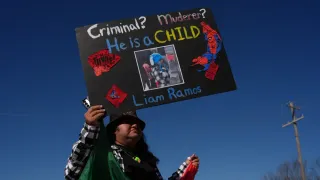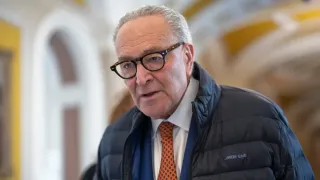May 14, 2017
Sheehy Calls for 'Respite Center'
Matthew S. Bajko READ TIME: 6 MIN.
District 8 Supervisor Jeff Sheehy would like to open what he is calling a "respite center" in the city's gay Castro district, possibly in a vacant retail space on the edge of the Duboce Triangle neighborhood, that would welcome homeless people off the streets during the day.
It is his answer to the call by some homeless advocates to open in his supervisor district a Navigation Center, which can house homeless individuals and their belongings on a temporary basis as the city works to find them permanent housing.
"We know there is growing support for a respite center," Sheehy told the Bay Area Reporter. "I want to get the conversations rolling so enough people are comfortable with it to get it moving forward."
Since being appointed to his board seat in January by Mayor Ed Lee, Sheehy has questioned the need for placing a Navigation Center in District 8 when there are two such facilities on the border of his district. He also has noted the lack of available sites in District 8 that could house a Navigation Center.
Instead, he envisions opening a facility in the Castro where homeless individuals could take shelter during the day and be off the streets, grab a bite to eat, and be connected to housing programs and other services. The model he has in mind is the homeless resource center operated by North Beach Citizens, which Sheehy toured Wednesday, May 3.
In a Facebook post about his visit, he promoted replicating the agency's model in the Castro. It was an idea former District 8 Supervisor Bevan Dufty had talked about when he was in office a decade ago.
"The work of North Beach Citizens is truly amazing. They are a community funded organization that provides meals, support services, and a pathway to housing for hundreds of homeless and low-income individuals," wrote Sheehy. "The tour of their facility and operations today was very productive and I'm hopeful that we can duplicate this successful model to help our homeless residents in District 8."
During the monthly Castro Merchants meeting Thursday, May 4, Sheehy said the site he has in mind once housed an HIV clinic and used clothing store at the corner of Church Street and Duboce Avenue.
"It would be a place for people to go so they are not on the streets," said Sheehy. "Would you rather have people injecting in front of your businesses or in a respite place?"
Surveyed if they would support seeing such a facility open in their neighborhood, the Castro business owners at the meeting overwhelmingly indicated they would. Daniel Bergerac, president of the business association, voiced support for having a place in the neighborhood that could serve both young and adult homeless people.
"A respite center, I think, needs to serve all ages," he said.
Sheehy told the B.A.R. that the "driving force" for the respite center idea has been the Castro/Upper Market Community Benefit District. At the merchant meeting last week CBD Executive Director Andrea Aiello noted that data from the Castro Cares initiative has found most of the homeless in the neighborhood are in their 20s and 30s and don't want to stay in the city's shelters.
"This would maybe be a place where people can go inside and get off the street," she said.
The location Sheehy is eying was vacated several years ago by the AIDS Healthcare Foundation following a rent dispute with its landlord, Maitri Compassionate Care, a nonprofit that operates a hospice on the building's second floor. AHF had divided the ground floor retail space into a traditional storefront and a health clinic area with its own entrance.
Last year, a sex offenders' rehab clinic had signed a lease with Maitri to relocate there. But it dropped its plans due to vehement neighborhood opposition. Sheehy acknowledged that placing his respite center idea there could be a hard sell with the neighbors but that would not deter him.
"If people don't like it, they can not vote for me," said Sheehy, who will go before voters in June 2018 to serve out his predecessor's term and run again that November for a full four-year term.
Michael Colbruno, a consultant for Maitri, told the Bay Area Reporter there has been "active interest" in the retail space and the agency is reviewing several letters of interest from potential tenants. But he did not respond when asked if the nonprofit would entertain leasing it for the purpose of a respite center.
Sheehy stressed that the respite center proposal is just one idea he is pursuing to address homelessness. He is particularly focused on finding more housing for the estimated 1,500 homeless youth in the city, of which 43 percent identify as LGBT. One idea put forth by the city's youth commission that he supports is doubling the number of beds for people under 25 years of age, which now stands at 558.
"We need residential behavioral treatment beds," said Sheehy.
Needle exchange services could be offered
Supervisor Jeff Sheehy. Photo: Rick Gerharter
The vacant commercial space could also double as a needle exchange site, said Sheehy, where intravenous drug users could drop off their used syringes and pick up clean ones. He pointed out that AHF's former clinic space, which was separated from the clothing store and had its own entrance on Church Street, could work for such a use.
He noted that across the street from the vacant storefront, at the bikeway behind the Safeway shopping center, the San Francisco AIDS Foundation sets up a needle exchange station Tuesdays from 6 to 8 p.m., which has elicited complaints from nearby residents. Sheehy suggested it might be preferable for the agency to instead operate a harm reduction center similar to the one it has on Sixth Street, which he visited last week.
"Bringing that inside might make the neighbors happier than they are now," said Sheehy, a gay man who is HIV-positive and a longtime AIDS advocate. "This might allow us to provide a broader array of services to people."
He clarified that he is not proposing for there to be a supervised injection facility at the site, noting that such a use is currently not allowed under state law. A bill that would permit such facilities is currently before state lawmakers, and San Francisco supervisors have asked the city's health director, Barbara Garcia, to convene a task force to look at how and where to set up supervised injection sites in the city.
For the time being, Sheehy said he is only looking at moving the current weekly needle exchange program indoors and perhaps expanding its hours so intravenous drug users have a place in the area to discard their used needles other than on the street.
"It would be great if we could use that space to have a respite center and get other services into there like needle exchange," said Sheehy. "It is already happening around the corner."
Asked if he would support seeing a safe injection site open in the Castro should the state law pass and the city task force recommend it, Sheehy replied those are "too many ifs" for him to take a position at this time.
Rafael Mandelman, a gay man and attorney who has filed to run against Sheehy next year, told the B.A.R. he supports the harm reduction model but would need to hear first from the community before he could back a safe injection site opening in the Castro.
"I support safe injection sites as a way to reduce deaths from overdoses, and I would far prefer to have folks shooting up in a safe facility than on a sidewalk, or in a park, or at a Muni station, as we all see far too regularly," said Mandelman. "But I would want to see a specific location and proposal and be confident neighbors wouldn't be impacted."
Gary McCoy, a former Castro resident who supports safe injection sites and pushed for the creation of the city's advisory group looking at the issue, told the B.A.R. that opening one in the Castro would likely face opposition.
"It is definitely going to take support from the community, but I think it is possible," said McCoy. "Every neighborhood in the city should do its fair share. The time is right for the neighbors to come together to support these advocacy and outreach initiatives."






